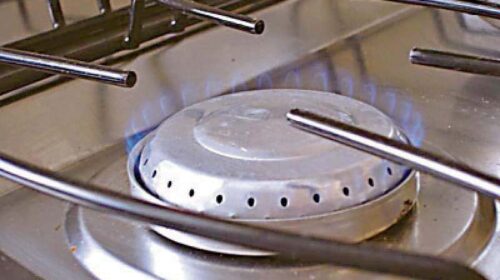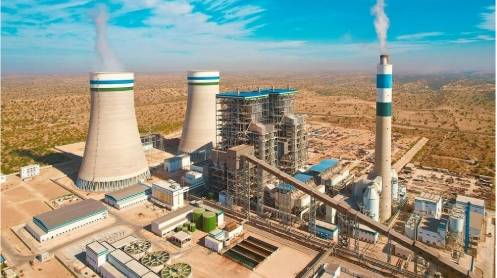The impact of the global energy crisis following the Russia-Ukraine conflict and the previous regime’s failure to take prudent steps had led to the fears that the nation would experience the worst-ever gas crisis during the ongoing high-demand winter season.
Everything is not alright, however, the current coalition government’s multi-faceted strategy to tackle the situation seems working and so far it has sensibly regulated the gas supply to domestic consumers to a significant amount. There is no denial about consumers’ complaints regarding commodity shortages in some areas of the country, but officials contend that these are results of the low-pressure or other technical and infrastructure-related issues, which are being fixed on a priority basis.
Minister of State for Petroleum Dr Musadik Malik commenting on the issue said the local gas production was experiencing around a 10 per cent decline annually, realizing this the government has arranged extra gas for the months of November, December and January as compared to the same months of the last year. “Additional LNG cargoes for January and February have also been secured from Qatar.” He said a Gas Framework Agreement with the Azerbaijani trading firm SOCAR was near completion for the availability of ‘distressed’ cargoes of LNG from the international market for purchase at the cheapest rate. Musadik Malik said the Sui companies had been directed to ensure the gas supply, especially during ‘breakfast, lunch and dinner’ preparation timings i.e. 6-9 a.m., 12-2 p.m. and 6-9 p.m.Rehabilitation of flood-hit people big challenge, says PM
He said an effective monitoring system of commodity’s demand and supply, observed by the Petroleum Division, was in place but the poor infrastructure was a hurdle creating a gas pressure issue for the remote areas, which was being rectified.
To bridge the demand and supply gap, the minister said the gas companies were providing more than 20,000 tons of Liquefied Petroleum Gas (LPG) per month in the areas where gas-pressure issues and shortages prevailed. Sui Northern Gas Pipelines Limited (SNGPL) has opened for the first time LPG cylinder outlets in the localities facing natural gas shortages.
The minister said the government was cognizant of the industrial sector’s energy demand and its importance to economic stability, exports and employment. Accordingly, he said, the government was utilizing all available options and contacting different countries including the Central Asian States and, “We are reaching out to all [potential] countries for buying gas either through pipelines or Liquefied Natural Gas (LNG) cargoes to meet the ever-increasing gas demand.” He highlighted the importance of exploiting the country’s indigenous oil and gas potential, saying that two new policies related to tight gas and the revival of old hydrocarbon wells, were being worked out.PM Shehbaz, COAS Asim Munir resolve to rid country of terrorism scourge
Russia, he said, had agreed in principle to provide crude oil, petrol and diesel to Pakistan at a discounted rate. “We believe that there will be a crucial role of the light crude oil, which will be imported from Russia, in bringing down the energy price.” In addition to that Pakistan has initiated negotiations with Russian private and public sector companies for procurement of Liquefied Natural Gas (LNG) to meet our energy needs.
The early establishment of the Pakistan Stream Gas Pipeline, commonly known North-South (Lahore-Karachi) Gas Pipeline, and another ‘big gas pipeline’ to get the commodity from Russian hydrocarbon deposits was also part of the plan, he added. Next month, an inter-governmental delegation of Russia, led by its Energy Minister, would visit Pakistan to make progress on oil and gas sale-purchase agreements between the two countries. The country’s domestic gas extraction varies around 3.5-7 Billion Cubic Feet per Day (BCFD) against the demand of 8 BCFD and it is difficult for any government to meet domestic, commercial and industrial sectors’ needs efficiently.SC strikes down Imran’s right to defence in PM Shehbaz’s defamation suit
The demand-supply gap is being bridged with the increased import of Liquefied Natural Gas (LNG), Liquefied Petroleum Gas (LPG) and accelerating hydrocarbon exploration activities in potential areas of the country, for which the government is in process of granting exploration blocks to successful companies after a complete bidding process. Cognizant of the situation, the coalition government is making all-out efforts to exploit indigenous hydrocarbon resources for achieving self-reliance in the energy sector.
Accordingly, a plan is being worked out to provide incentives to both local and foreign exploration and production (E&P) companies to step up drilling activities in potential areas across the country. “An effective package of incentives will be offered to them (companies) as making discoveries, and extracting oil and gas with modern machinery is the need of the hour,” said a senior official privy to the energy development sector. Pinning high hopes, he viewed that Allah Almighty bestowed the country with great natural resources and once these were potentially exploited, there will be a complete autarky in the energy besides national prosperity. “There is a light at the end of the tunnel. We just need to move in the right direction with steadfastness.”





